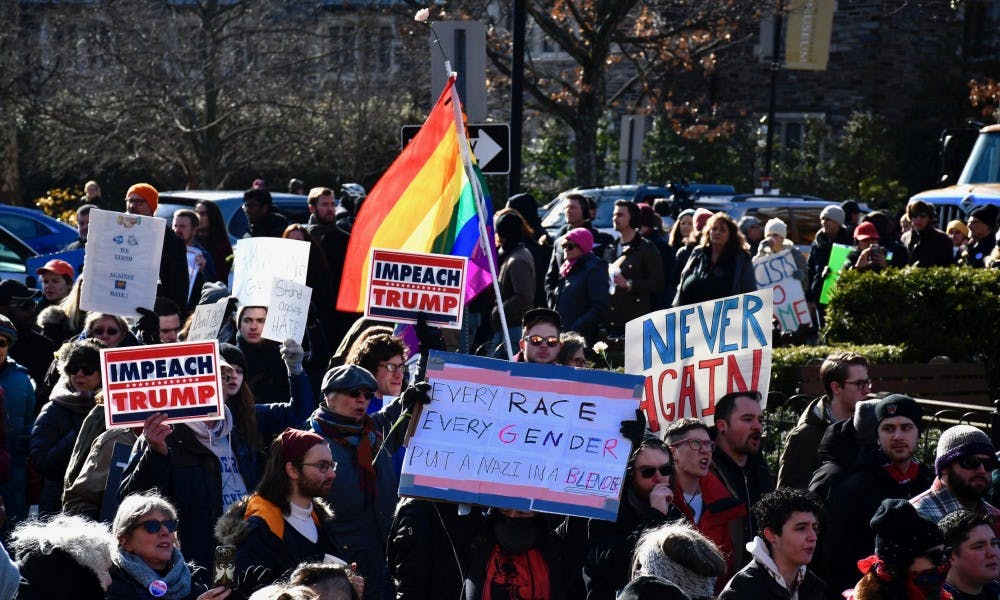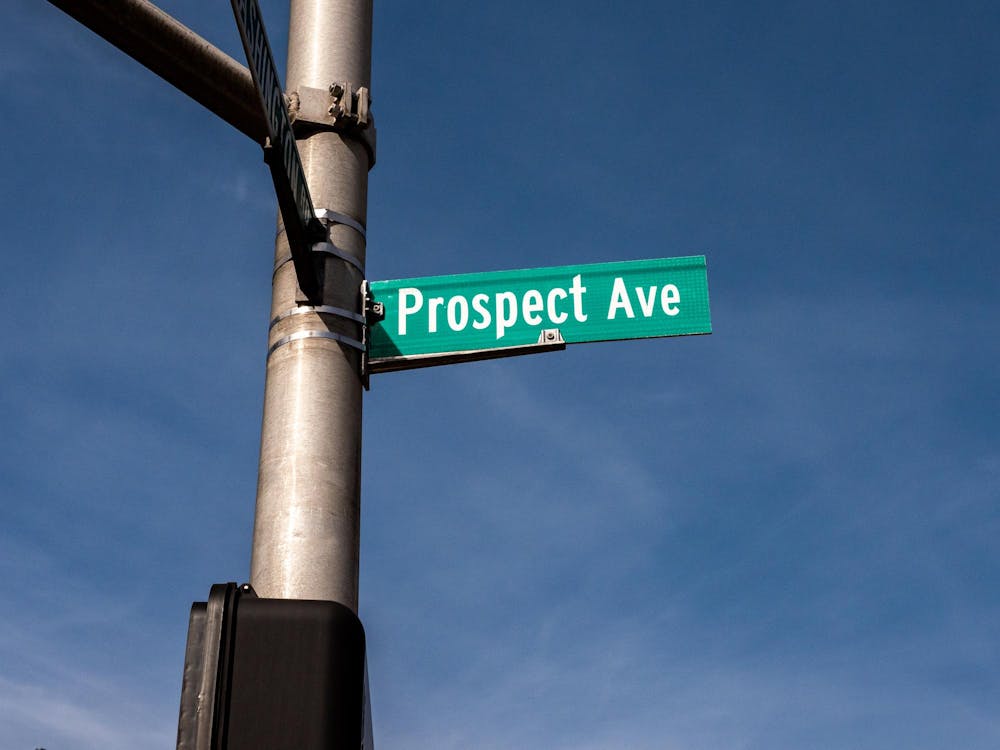After coming out as openly queer, I had a partner inform me that she would only continue to date me if I specifically identified as a lesbian, constantly questioning my queerness (and interest in her) because I had dated men in the past. I was told that I wouldn’t be “enough of a woman” to date women-loving-women if I cut my hair short, that I’d be too much of a man if I didn’t painstakingly remove my body hair.
This is just one example of the biphobia, transphobia, and general bigotry that I have experienced within the LGBTQIA+ community while on campus over the past four years. These experiences demonstrate that the gatekeeping and exclusion by other queer students and allies can be the most detrimental experiences queer people encounter at Princeton. I know countless peers who have struggled with similar feelings of isolation, especially within those who identify with particularly marginalized identities within the LGBTQIA+ community.
Precarity, isolation, suppression of identity, and feelings of difference are often normalized parts of existence as a queer person in today’s world. Homophobia and transphobia endure to this day. But in spaces that are markedly progressive and accepting, gatekeeping of queerness is unacceptable. As Princeton students — whether queer or allies — we must foster a safe and accepting community for people of all identities, rather than contributing to the self-doubt and isolation one already often experiences as part of the LGBTQIA+ community.
I have never felt particularly secure in many integral aspects of my identity, but for as long as I can remember, I’ve known that I was queer. However, my queerness — in terms of both gender and sexuality — was something I did not have the opportunity to explore until college, given the precarity of growing up in a small, mostly conservative, rural town as a queer kid. For years, I went through mental gymnastics and internalized self-hatred in order to persuade myself that queerness was a choice.
At the start of my Princeton career, I continually suppressed the question of queerness that had remained at the back of my mind for much of my life, going through the motions of gender role conformity and heterosexuality in hopes of “fitting in.”
Even as I was attempting to conform to cisheteronormativity, living in Princeton provided me with the first opportunity I had ever had to safely explore questions of gender and sexuality that I had bottled up my whole life. Coming to Princeton was the first time I had close friends who were openly lesbian and bisexual. It was the first time I learned about progressive politics and found myself in a left-leaning community. It was the first time that I wasn’t around fundamentalist Christians insisting that homosexuality was an irredeemable sin. I was finally in an environment where queerness was generally accepted, at least to an extent.
So when I finally opened up to the people close to me at Princeton about my queerness, I was appalled by the exclusion and doubt I experienced at an interpersonal level, even within the queer community itself.
The example I described earlier is just one of many. When I told my so-called “ally” of a boyfriend at the time, for instance, that I thought I might be bisexual or pansexual, he told me he was disgusted by the thought of me with another woman and that my sexuality was something he refused to accept. A gay friend sent me a Kinsey Scale test and maligned me for not obtaining the result “exclusively homosexual” like she had. Another time, a peer asked why anyone would identify as transgender when they could “just be gay.”

Throughout my time at Princeton, I have often felt pressured to justify my queerness in order to continue belonging.
Over and over and over again, I have been made to feel as though I didn’t belong in the queer community at Princeton because nothing felt quite right. I knew I wasn’t straight and I wasn’t cisgender, but I never felt like I could decisively define my sexuality and gender identity in terms of specific labels. It took years of trying to fit in, alongside seemingly perpetual discomfort with my gender and sexuality, in order to realize that I didn’t need to define myself in terms of any one ‘letter’ in the LGBTQIA+ acronym in order to belong in the queer community. I could just be queer.
Even within communities which are supposed to be accepting of queerness, those who do not conform to accepted labels and stereotypes often remain excluded and isolated from the spaces they belong to just as much as anyone else.
So much of the queer experience is already colored by internalized hate and doubt, coupled with external acts of homophobia and transphobia. Belonging in the queer community is not contingent on alignment with specific labels or gender presentation. Moving forward, it is crucial to have open dialogue about sexuality and gender identity within the queer community, and we must be willing to listen to experiences other than our own. No one should experience feelings of inadequacy and self-doubt prompted by their own community.

Hannah Reynolds is a senior in the Anthropology Department from the Finger Lakes in Upstate NY. She can be reached at hannahr@princeton.edu.








